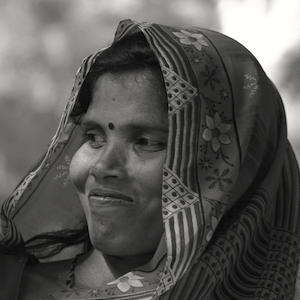Contextualizing motherhood in persons with borderline personality vulnerabilities: cultural adaptation of the Parent Development Interview-Revised in an Indian context

HTML: 19
All claims expressed in this article are solely those of the authors and do not necessarily represent those of their affiliated organizations, or those of the publisher, the editors and the reviewers. Any product that may be evaluated in this article or claim that may be made by its manufacturer is not guaranteed or endorsed by the publisher.
Authors
An understanding of the complex intersection of borderline personality vulnerabilities and motherhood calls for an integrative and culture-sensitive lens in assessment and therapeutic interventions. The aim of the study was to explore constructions of motherhood in an Indian context to inform the adaptation of the Parent Development Interview-Revised (PDI-R) for use with mothers with borderline personality vulnerabilities. A stepwise framework was followed to obtain conceptual, semantic, and operational equivalences for the PDI-R adaptation. Interviews on contextualised aspects of motherhood were conducted with a sample of eight mental health practitioners specializing in borderline personality disorders, women’s mental health or child psychology, two cultural psychologists, one gynaecologist and one paediatrician. Six emergent themes were identified through thematic analysis, ‘The ideal mother and her search for identity,’ ‘Mothering the mother and the vicissitudes of care,’ ‘Not just mine - negotiating boundaries,’ ‘Mother knows best,’ ‘Food, feeding and embodied nurturing,’ and ‘Approaching motherhood in the clinic.’ The proposed adaptations to the PDI-R were further reviewed by two experts; a clinical psychologist and a psychiatrist specialised in perinatal services. This was followed by the process of operational equivalence through administration of PDI-R with two mothers with borderline personality vulnerabilities and two mothers from the community. The expert review and the administration informed the final adaptation of the PDI-R. A systematic process of adaptation can support the use of measures like the PDI-R in different cultures. A contextual understanding of constructions of motherhood and borderline personality has potential to support meaningful assessment and targeted parenting interventions.
How to Cite

This work is licensed under a Creative Commons Attribution-NonCommercial 4.0 International License.
PAGEPress has chosen to apply the Creative Commons Attribution NonCommercial 4.0 International License (CC BY-NC 4.0) to all manuscripts to be published.
Similar Articles
- Zelda Gillian Knight, I am surrounded by death: death as a defining psychic issue within a relational psychoanalytic engagement and the impact of the therapist’s relationship with death , Research in Psychotherapy: Psychopathology, Process and Outcome: Vol. 22 No. 2 (2019)
- Joseph A. Hirsch, An American scientist's iconoclastic response to Psychotherapies for Anxiety and Depression: benefits and costs , Research in Psychotherapy: Psychopathology, Process and Outcome: Vol. 20 No. 2 (2017)
- Dante Gabriel Duero, Francisco Javier Osorio Villegas, Phenomenological-narrative contributions to understand the narrative strategies that shape the autobiographical account throughout different moments of the therapeutic process , Research in Psychotherapy: Psychopathology, Process and Outcome: Vol. 21 No. 2 (2018)
- Maria Inês Galvão, Ana Nunes da Silva, António Branco Vasco, The Alliance Negotiation Scale: Portuguese adaptation , Research in Psychotherapy: Psychopathology, Process and Outcome: Vol. 22 No. 2 (2019)
You may also start an advanced similarity search for this article.

 https://doi.org/10.4081/ripppo.2023.675
https://doi.org/10.4081/ripppo.2023.675



